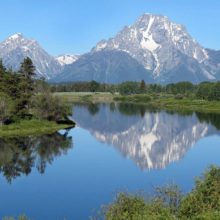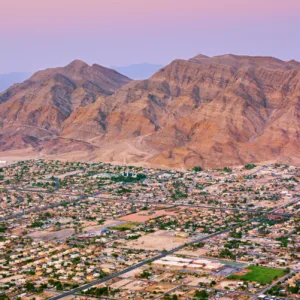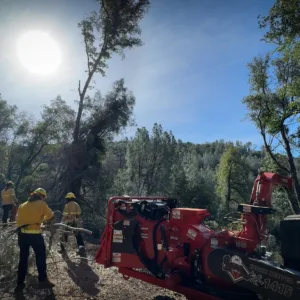
More than 68,000 abandoned or inactive mines in areas with high flood risk endanger people and places across the U.S.

Headwaters Economics’ Data Engineer Tara Preston collects, updates, and helps analyze the data that feed all the organization’s web-based tools and products such as Neighborhoods at Risk, Wildfire Risk to Communities, and Headwaters Economics’ 17 socioeconomic reports in its Economic Profile System.
Data are more than raw numbers. Combined into databases, separated, and merged in new ways, data can provide new insights. A certified Geographic Information Professional, Tara’s passion is merging physical landscape research with understanding the trends and data around the people who reside within those spaces.
When staff need information, they turn to Tara to locate the most reliable data sources to shed light on their research questions. Tara is adamant about using high-quality data – that is, data that are accurate, relevant, and well documented. She spends much of her time interpreting and analyzing raw data before folding it into Headwaters Economics’ databases. From good databases she then creates data visualizations that help the research team find meaningful stories that need to be told.
As she builds databases, Tara pulls data from many different national sources and analyzes them for Headwaters Economics’ use. Understanding the metadata – that is, the data about the data – is critical for clear and accurate interpretation and communication. She also continually updates the organization’s databases as new data are released by the U.S. Census Bureau and other federal sources. With a love of rural and western people and landscapes, a geology degree from the University of Colorado, and a master’s degree in geography from Montana State University, Tara spent many years working as a GIS Analyst for the USGS. She later transitioned into data maintenance and analytics for local government before coming to Headwaters Economics.
Find the latest American Community Survey data in all of our tools, including the Economic Profile System and Neighborhoods at Risk.

More than 68,000 abandoned or inactive mines in areas with high flood risk endanger people and places across the U.S.

The growing connection between livelihoods and public lands calls for more investments in public access, preserving ecosystems, and minimizing privatization.

Extreme heat poses health risks to millions of rural Americans. Solutions need to be tailored to meet the unique characteristics of rural places.

Federal public lands may offer opportunities to improve housing affordability in a limited number of states, but will face significant barriers from wildfire risk, water availability, and conflicts with existing resource or recreation uses.

A Forest Service program is helping communities across the nation reduce wildfire risk—including those that don’t normally have the resources to successfully compete for federal grants.